|
|
|
|
|
|
|
|
|
Empathy in
Conflict Intervention
Richard Bowers and Nelle Moffett interviewed by Edwin Rutsch |
|
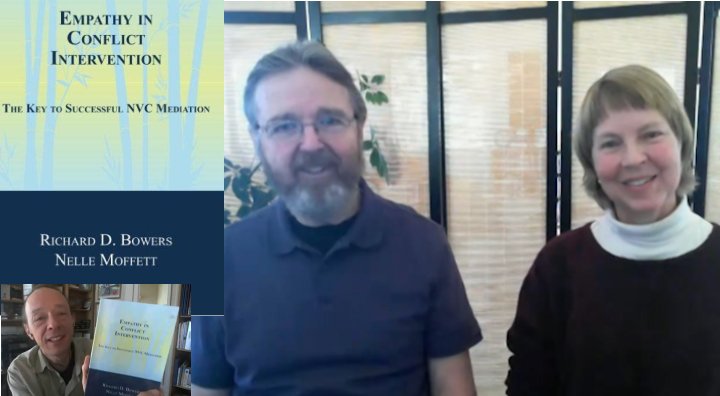 |
Richard Bowers introduces himself by saying, In addition to my private practice, I am a guest lecturer at Antioch
University Midwest's Integral Studies in Conflict & Leadership program, I
serve as a Ventura County Small Claims Court mediation supervisor through
the Ventura Center for Dispute Settlement, and I mediate cases through the
Los Angeles and Ventura County Superior Courts. My private practice,
working with Nelle Moffett, involves workshops, practice groups, and
working with individuals and couples focusing on communication and
conflict coaching.
Nelle and I co-authored Empathy in Conflict Intervention: The Key to
Successful NVC Mediation. This book brings together theories from
psychology, conflict resolution, and sociology to explore the
effectiveness of empathy in mediation.From the book:
"What empathy provides for the mediator is a way to
create an unbiased connection with each client without reverting to a cold
aloofness that is sometimes taught in mediation training."
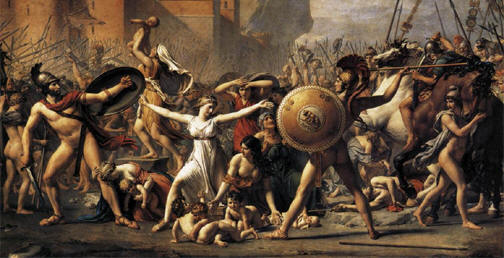
The
Intervention of the Sabine Women - Jacques-Louis David (wikipedia)
"The impact of mediator empathy towards both parties may provide the
support needed for successful mediation even when there is no ongoing
relationship between the parties. A better understanding of the
power of empathy could lead to increased usage of empathy in mediation.
This increased usage of empathy could increase perspective-taking by the
parties within mediations, leading to increased connection, collaboration,
or satisfaction with the mediation process for both mediators and
disputants. "
Sub
Conference: Justice |
|
|
|
|
|
|
|
In Defense of Empathy and Justice
John Gibbs
|
|
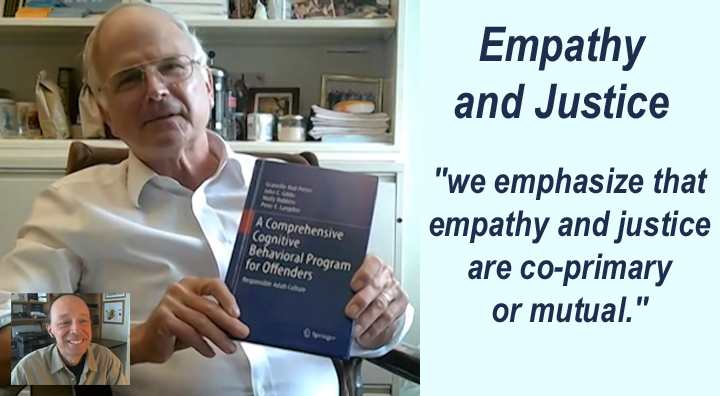 |
|
John Gibbs is a professor of developmental psychology at The Ohio State
University and the author of Moral Development and Reality: Beyond the
Theories of Kohlberg, Hoffman, and Haidt. John says, my interests pertain
to cross-cultural sociomoral development, parental socialization, empathy,
prosocial behavior, and antisocial behavior. I have, with students and
colleagues, developed assessment measures of moral judgment, moral
identity, social perspective-taking, self-serving cognitive distortions,
and social skills. Together with
Martin Hoffman
he wrote an article,
Hillary has a point: In defense of empathy and justice.
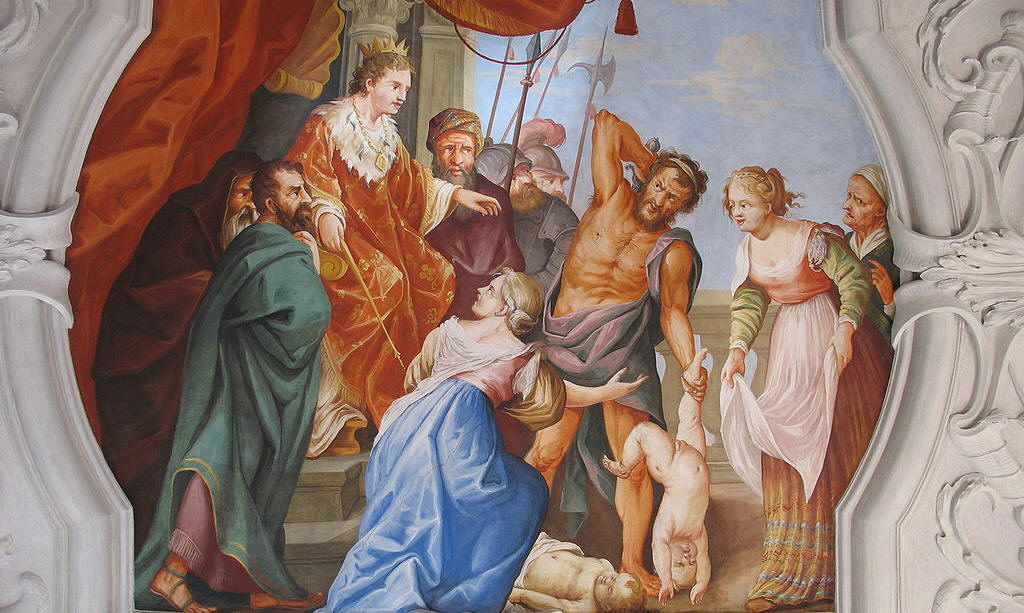
Fresco of the Judgment of Solomon,
(Wikipedia)
Hillary Rodham Clinton had a point when she recently urged:
"The most important thing each of us can do... is to try even harder to
see the world through our neighbors' eyes, to imagine what it is like to
walk in their shoes, to share their pain and their hopes and their
dreams"....
we emphasize that empathy and justice are co-primary or mutual. If justice
serves empathy, the reverse is certainly also true ...
Morality is most objective and compelling when justice and empathy align.
That is, the moral prescription to act is strongest when victims are both
wronged and harmed .
Sub Conference:
Justice |
|
|
|
|
|
|
|
The Power of Empathy
and Focusing
Ann Weiser Cornell
|
|
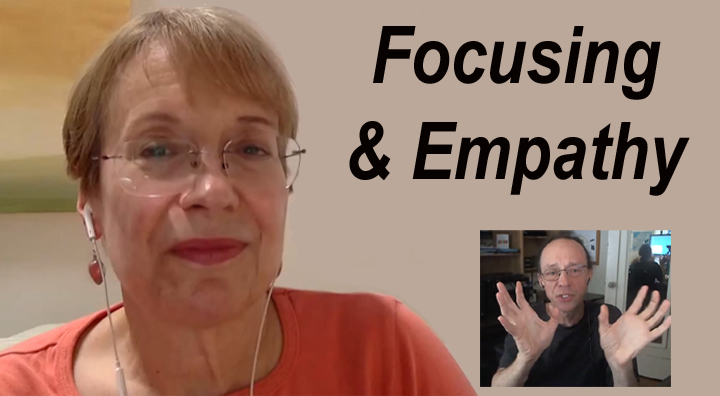
Ann Weiser Cornell is an author, educator, and worldwide
authority on Focusing, the self-inquiry psychotherapeutic technique
developed by Eugene Gendlin. She has written several definitive books on
Focusing, including
Ann
has taught Focusing around the world since
1980, and has developed a system and technique called Inner Relationship
Focusing.
She
says,
" I
want to say first of all how much I admire your work and how much I
believe in what you are doing, because I believe that empathy can move
mountains. Empathy can change the world. And it changes situations when we
bring empathy in...
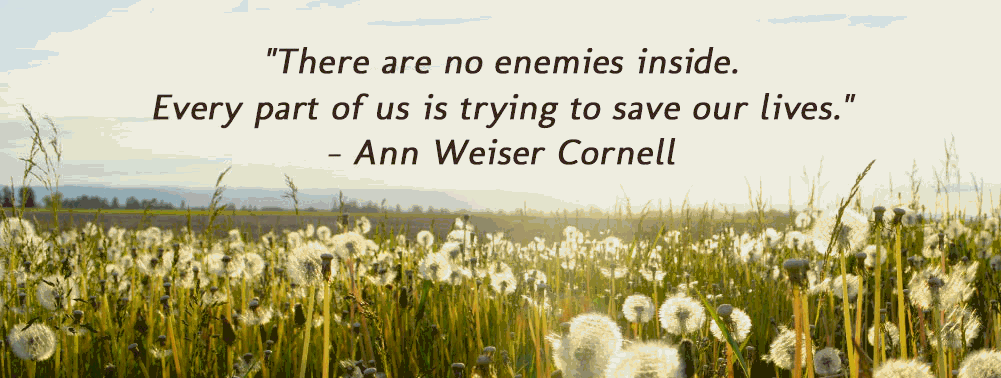
So the power of empathy to open a space where something new can happen
is enormously impressive and yes, in 44 years now of working with Focusing
and listening, I've seen it over and over and over again.
Now that is very powerful.
So what I would say is,
empathy releases impasse.
That is true and we see it all over the place when it's possible in groups,
in working groups, even people who
love
each other." |
|
|
|
|
|
|
|
Empathy-Based
Family Life with Hand in Hand Parenting
Craig Appel |
|
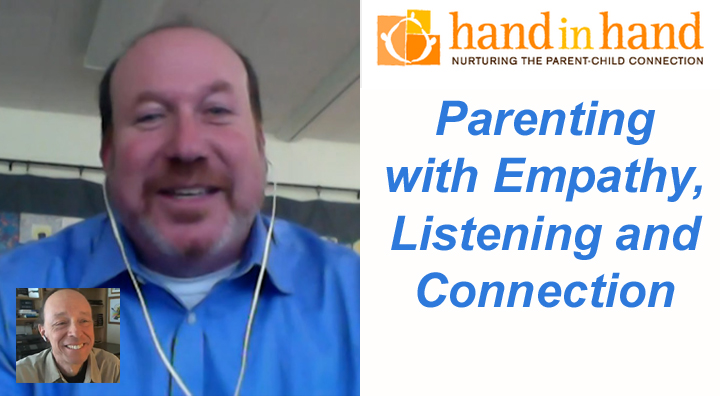 |
|
Craig Appel
is the Executive Director of
Parenting by Connection
that uses the Hand in Hand Parenting approach.
They say, "Our mission is to provide parents with insights, skills, and
support they need to listen to and connect with their children in a way
that allows each child to thrive. We do this through easy-to-access
support, classes, and literature. We offer vital information to help
parents deal with issues from children biting and kids' temper tantrums to
learning issues and bullying on playgrounds and in schools."
"I started to see that helping parents and changing the
dynamic in the family and how children are raised is a huge leverage point
for changing the world. Raising empathic children... has huge butterfly
rippling effects in terms of changing the world...
We model the behaviour of listening
with empathy, and that is how we help them grow into social and emotionally
intelligent children."
Sub Conference: Empathic Family |
|
|
|
|
|
|
|
Philosophers Empathy
Circle
For & Against Empathy
Lori Gruen,
Jesse
Prinz and Edwin Rutsch
|
|
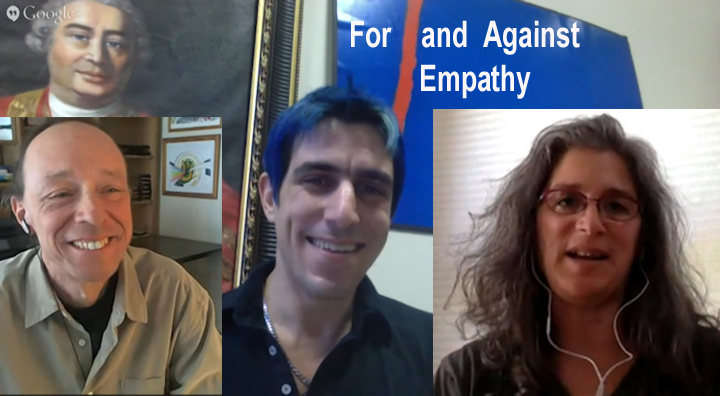
With David Hume looking over his their shoulders,
Edwin Rutsch facilitates a new way for philosophers to dialog
with each other about their views. Instead of a competitive debate, they
try to empathize with each others feelings,
needs,
points of view and understandings. Edwin
facilitates this
Philosophers Empathy Circle
with
Jesse Prinz
who is 'against empathy' and
Lori Gruen
who is 'for empathy'.
Check out this fascinating process and discussion. How will it end?
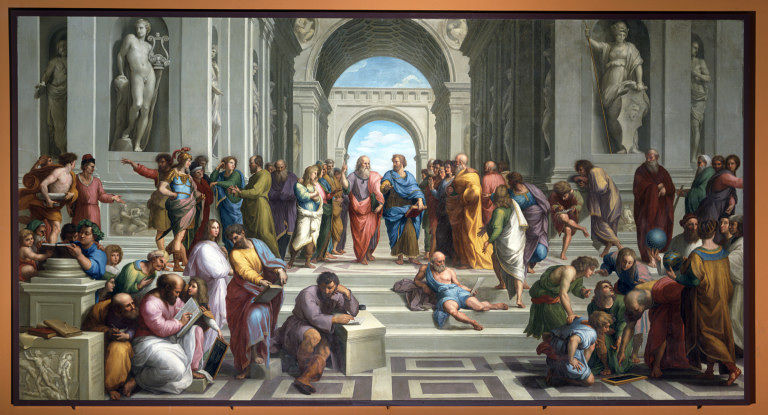
The School of Athens,
by Raphael
(Wikipedia)
"empathy is prone to biases that render it potentially
harmful...
I argue that, instead of empathy, moral judgments involve emotions
such as anger, disgust, guilt, and admiration. These, not empathy,
provide the sentimental foundation for morality."
Lori Gruen is Professor of Philosophy at
Wesleyan University and
author of 'Entangled
Empathy: From an Ethics of Justice to an Ethics of Empathy'
"Empathy is also something we are taught to "get over"
or grow
out of. We learn to quash our caring reactions for
others, and
our busy lives and immediate preoccupations provide
excuses for not developing empathy."
"I feel we need to build a global culture of empathy.
It's the only way humanity and the planet can survive."
|
|
|
|
|
|
|
|
Nurturing
Empathic Family and Parenting
Robin Grille
"Our job is
to be the teachers of empathy - We are empathy farmers!"
|
|
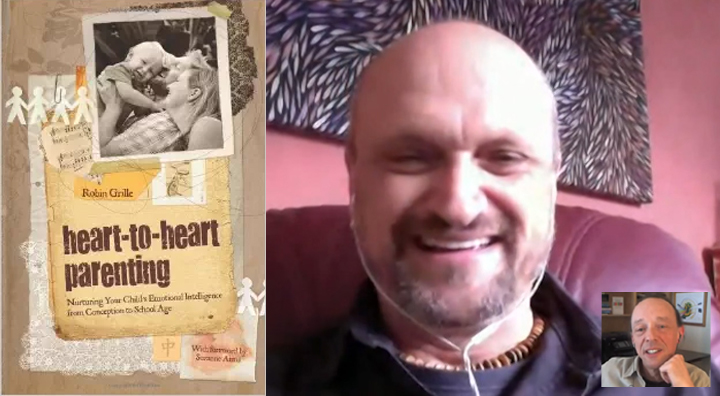 |
|
Robin Grille is an "empathy farmer", father, a psychologist in
private practice with twenty years' experience, and a parenting educator.
His articles on parenting and child development have been widely published
in Australia and overseas. Robin's first book: 'Parenting for a Peaceful
World' has received international acclaim and led to speaking
engagements around Australia, USA and New Zealand. 'Heart to Heart
Parenting' is Robin's second book.
A passionate speaker and social change activist, Robin's extensive research
has led him to feel that improved attention to babies' and children's
emotional needs is the most powerful way to move societies toward
sustainability and peace.
"The human brain and heart that are met primarily with empathy
in
the
critical early years cannot and will not grow to
choose a violent or
selfish life."
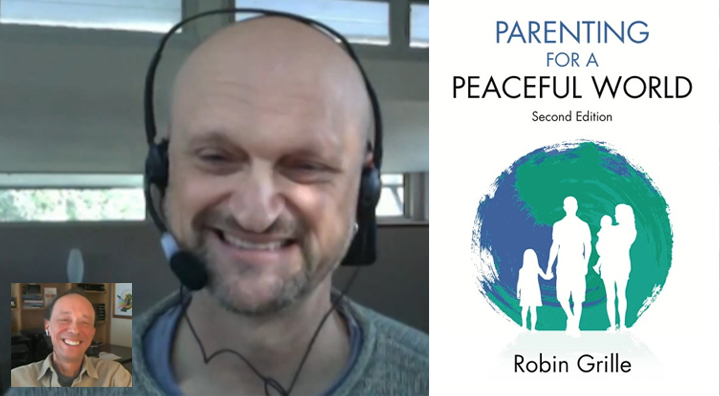
"Building
of human empathy is one brick at a time and sometimes
the
bricks come down in the
building process."
"Nobody
can escape life's struggles and traumas,
but those who have experienced
the empathy that helped
them build a strong sense of self in childhood
tend to have
a strong foundation for emotional resilience and can draw
on positive internal resources to help them resolve and rebound."
Sub Conference: Empathic Family |
|
|
|
|
|
|
|
Entangled Empathy: From an
Ethics of Justice to an Ethics of Empathy
Lori Gruen |
|
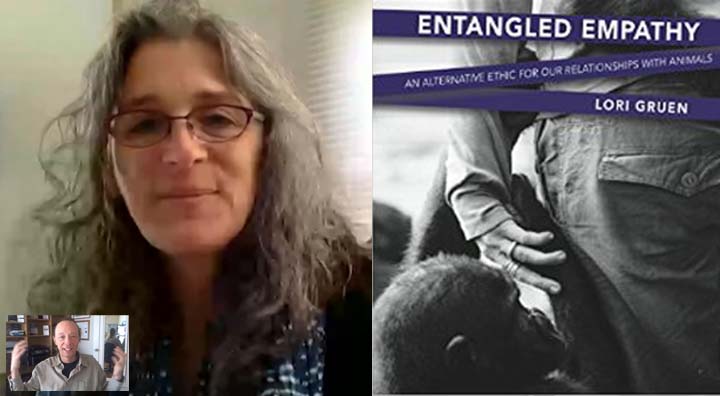
|
|
Lori Gruen is Professor of Philosophy,
Feminist, Gender, and Sexuality Studies, and Environmental Studies at
Wesleyan University where she also coordinates Wesleyan Animal Studies. Her
work lies at the intersection of ethical theory and practice, with a
particular focus on issues that impact those often overlooked in
traditional ethical investigations, e.g. women, people of color, non-human
animals. She has published extensively on topics in animal ethics,
ecofeminism, and practical ethics more broadly. Lori
is author of,
Entangled Empathy,
An Alternative Ethic for Our Relationships with Animals.
"Empathy is also something we are taught to "get over"
or grow
out of. We learn to quash our caring reactions for
others, and
our busy lives and immediate preoccupations provide
excuses for not developing empathy."
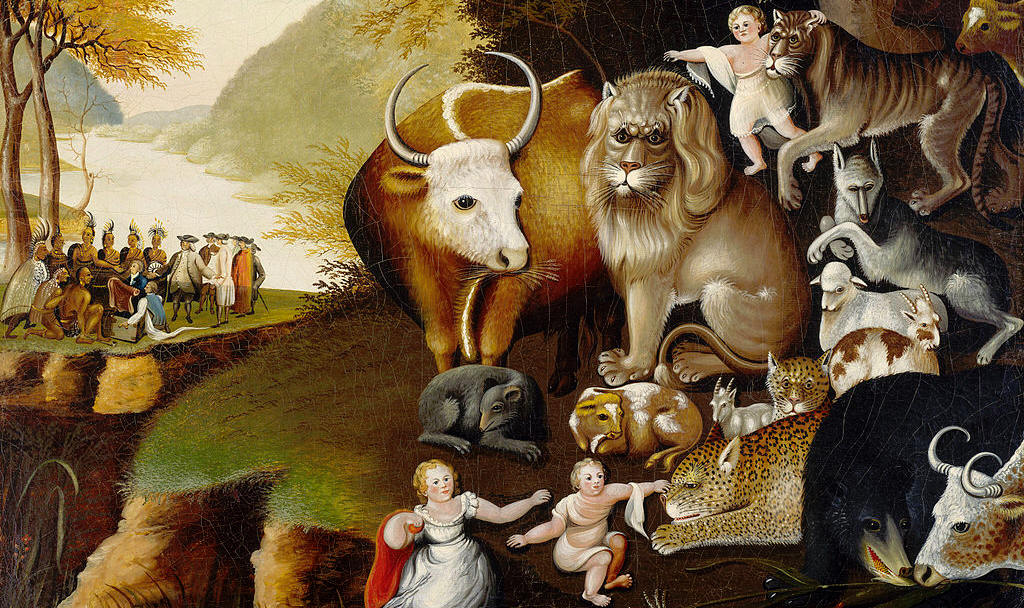
Edward Hicks -
The Peaceable Kingdom
(Wikipedia)
From the book
description, "In
Entangled Empathy, scholar and activist Lori Gruen argues that rather than
focusing on animal "rights," we ought to work to make our relationships
with animals right by empathetically responding to their needs, interests,
desires, vulnerabilities, hopes, and unique perspectives. Pointing out
that we are already entangled in complex and life-altering relationships
with other animals, Gruen guides readers through a new way of thinking
about - and practicing - animal ethics."
Sub Conferences:
Science
|
|
|
|
|
|
Practical Empathy: For
Collaboration and Creativity in Your Work
Indi Young
|
|
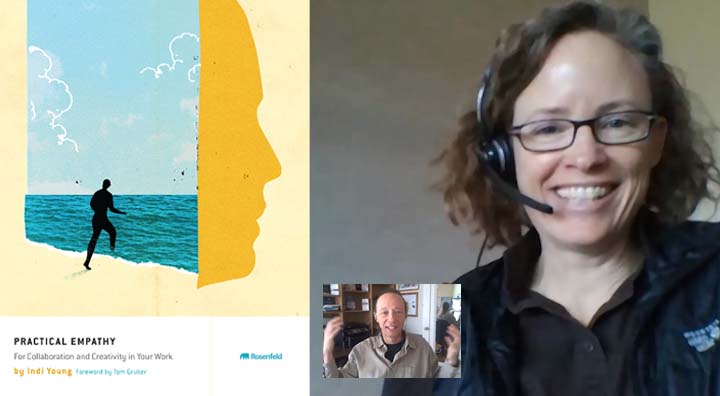 |
|
"Indi Young is an expert consultant in user experience,
offering her services in empathy research, strategy, and redesign to
organizations around the world. She has helped with digital applications,
services, process design, and content strategy. She focuses on helping
engineers, designers, and stakeholders tackle the hardest problems by
understanding the people they're trying to support. Indi offers workshops
for any size group and provides consulting on an affordable basis. She
offers her services directly and also through the Rosenfeld Media Experts
group." Indi is author of,
Practical
Empathy: For Collaboration and Creativity in Your Work. (Put
in the promotion code "CULTURE" for a book discount on the Rosenfeld
publisher website)
"Conventional product development focuses on the solution.
Empathy is a
mindset that focuses on people, helping
you to understand their thinking
patterns
and perspectives."
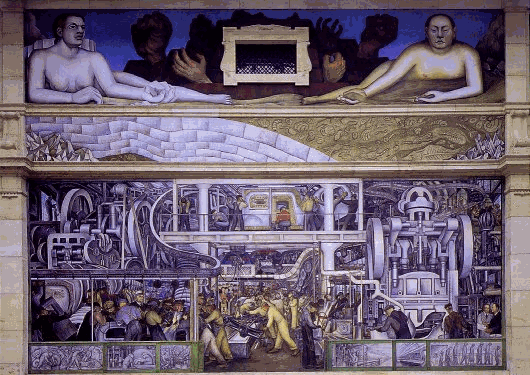
Detroit Industry,
Diego Rivera (Wikipedia)
From the book forward.
"Indi Young's book is a practical manual for practicing
empathy, which is a skill, not an innate talent. Empathy is a mindset that
can be learned and improved with practice. There are best practices,
techniques, and tools that help you get your own ego out of the picture and
focus on what things are like from another person's perspective. It is not
easy to do really well, but it is worth doing really well! And Indi's book
shows you how to do it.
Practical Empathy offers advice on how to practice an empathetic mindset
toward other people involved in the conception, design, or implementation
of a product."
Sub Conference: Human-Centered-Design
and
Business and Work |
|
|
|
|
|
Empathy and Morality
Heidi Maibom
|
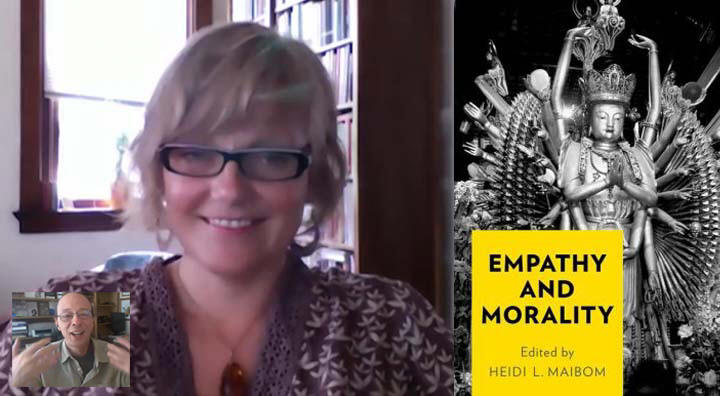 |
|
Heidi L. Maibom is professor of philosophy at University of
Cincinnati. She studied at University of Copenhagen, University of
Bologna, and University College London, and has held fellowships at
Cambridge and Princeton Universities. She works on folk psychology,
empathy, responsibility, and psychopathy. Heidi is the editor and
contributor to the book, Empathy and Morality. She wrote the first chapter
titled, Introduction: Everything you ever wanted to know about empathy.
Empathy
and Morality, the book publisher's description: "This collection is
dedicated to the question of the importance of these capacities to
morality. It brings together twelve original papers in philosophy,
psychology, psychiatry, anthropology, and neuroscience to give a
comprehensive overview of the issue and includes an extensive survey of
empathy and empathy-related emotions.
Some contributors argue that empathy is essential to core
cases of moral judgments, others that empathic concern and moral
considerations give rise to wholly distinct motives. Contributors look at
such issues as the absence of empathy in psychopaths, the use of empathy
training for rehabilitating violent offenders, and the presence of empathy
in other primates. The volume is distinctive in focusing on the moral
import of empathy and sympathy."
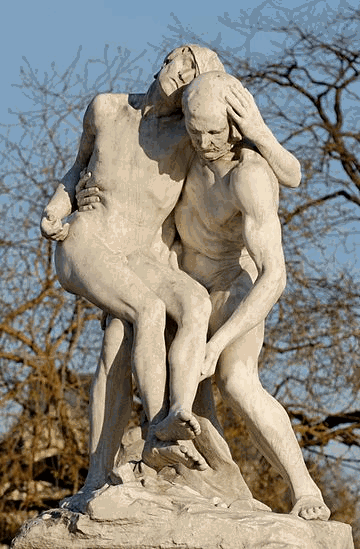
"The
Good Samaritan" by Francois-Leon Sicar (wikipedia)
"It brings together twelve original papers in
philosophy, psychology,
psychiatry, anthropology, and neuroscience to give
a comprehensive overview of the issue and includes
an extensive survey of empathy and
empathy-related emotions."
Sub Conferences:
Science
|
|
|
|
|
|
Empathy
Connects and Removes the Blocks to Action!
Dominic Barter |
|
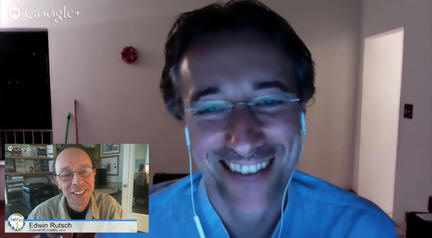 |
|
Dominic Barter plays with dialogue and
partnership, focusing primarily in the fields of education, justice,
culture and social change. In the mid-90s he collaborated in the
development of Restorative Circles,
a community-based and -owned practice for dynamic engagement with conflict
that grew from conversations with residents in gang-controlled shantytown
favelas in Rio de Janeiro.
He adapted the practice for the
Brazilian Ministry of Justice's award-winning national projects in
Restorative Justice and supports its application in a further 25
countries. In recent years he has supervised the mediation program for the
Police Pacification Units in Rio, served as invited professor at the
Standing Group for Consensual Methods of Conflict Resolution, at the High
Court of Rio, with a focus on school mediation and bullying, and focused
on the development of restorative community. Currently Dominic directs the
Dialogue Restoration project for the State Education Department of Rio de
Janeiro and partners with the Centre for the Study of Public Security and
Citizenship at Candido Mendes University.
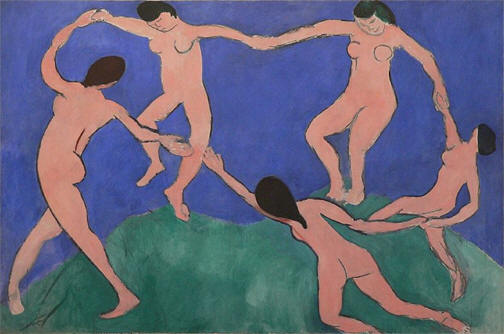
La danse - Henri Matisse
(Wikipedia)
There's
something really unique about empathy,
that it clears the things that are blocking action,
and that it
connects both inside and
to other people in a way that
is
transformative.
As a long time student and colleague of Dr. Marshall
Rosenberg Dominic serves on the Board of Directors for the Center for
Nonviolent Communication, shares Nonviolent Communication throughout
Brazil and internationally, and supports its learning in project-based,
community contexts. He has been active in the street movements and
occupations in Rio in recent years. He's the very happy dad of an amazing
14 year old. You can find out more
about Restorative Circles at
RestorativeCircles.org
Sub
Conference: Justice |
|
|
|
|
|
Beyond Compassion
Fatigue:
The Transactional Model of Physician Compassion
Antonio Fernando |
|
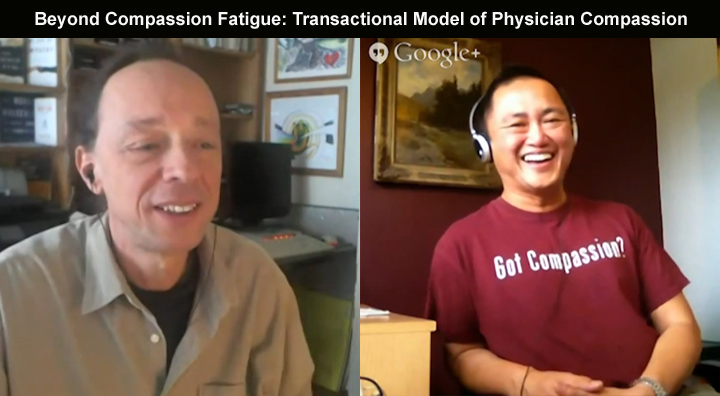 |
|
Antonio (Tony) Fernando is a medical doctor and
Senior Lecturer at the School of Medicine in the University of
Auckland located in
Auckland, New Zealand. His research interests include diagnosis
and treatment of insomnia and other sleep disorders. He is currently
working on a PhD on compassion in healthcare.
Tony wrote an article titled;
Beyond Compassion Fatigue: The Transactional Model of Physician
Compassion. He writes, "Paradoxically, despite being central to
the practice of good medicine, the bulk of studies across the past two
decades have been focused not on compassion, but on compassion fatigue....
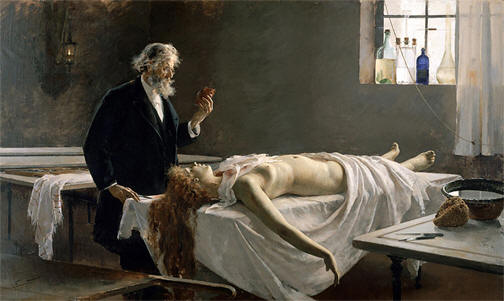
Anatomy of the heart - Enrique Simonet (Wikipedia)
We have
suggested that the scientific study
of compassion in medicine may be enhanced
when conducted within a transactional framework...
"We have suggested
that the scientific study of compassion in medicine may be enhanced when
conducted within a transactional framework in which compassion is viewed
as stemming from the dynamic interactions between physician, patient,
clinical, and institution/environment factors. The Transactional Model of
Physician Compassion offers a framework within which to identify and
organize the barriers and facilitators of physician compassion and thus
better inform future interventions aimed at enhancing physician
compassion."
Sub Conference:
Health Care
|
|
|
|
|
|
Panel 26: What is the Relationship Between
Self-Empathy, Empathy,
Self-Compassion & Compassion?
|
|
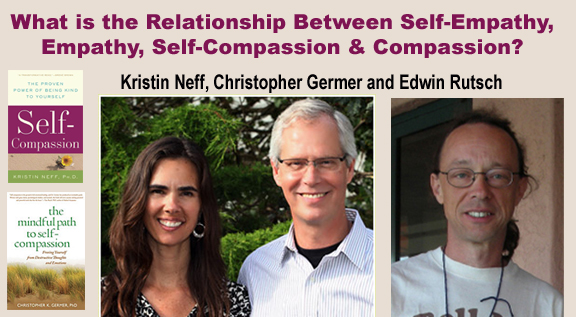 |
|
In this panel discussion,
Kristin Neff, Christopher Germer
and Edwin Rutsch discuss the question,
What is the Relationship Between
Self-Empathy, Empathy, Self-Compassion & Compassion? There is
a great deal of confusion about the
meanings and definitions of self-empathy, empathy, self-compassion
& compassion. We might be talking about the same experience,
but are using different words, or are talking about different
experiences and are using the same word, etc.

The Good Samaritan by Aime Morot
(Wikipedia)
There is a great deal of confusion about the
meanings and
definitions of self-empathy, empathy, self-compassion
& compassion. We might be talking about the same
experience, but are using different words.
Some people,
for instance, say there is compassion fatigue. Recently some in the
compassion community have been saying it's really empathy fatigue.
Kristin feels personal distress may be a more
accurate term. Edwin feels there is no such
thing as compassion or empathy fatigue, it is really more
accurately described as empathy and compassion deficit fatigue.
Join us for a wide ranging dialog about this and more with leaders
in the field of empathy and compassion.
Kristin Neff is Associate
Professor in Human Development and Culture, Educational Psychology
Department, University of Texas at Austin. Kristin is author of
Self-Compassion: Stop Beating Yourself Up and Leave Insecurity
Behind.
Christopher Germer
is a clinical psychologist in private practice, specializing in
mindfulness and acceptance-based treatment. He is a clinical
instructor in psychology at Harvard Medical School and a founding
faculty member of the Institute for Meditation and
Psychotherapy. Chris is author of
The
Mindful Path to Self-Compassion: Freeing Yourself from Destructive
Thoughts and Emotions
Edwin Rutsch is founding director of
The Center for Building a Culture
of Empathy. The center is a portal for resources and information
about the values of empathy and compassion.
Sub Conferences:
Science and
Self-Empathy
|
|
|
|
|
|
Empathy and
Democracy: Feeling, Thinking, and Deliberation |
|
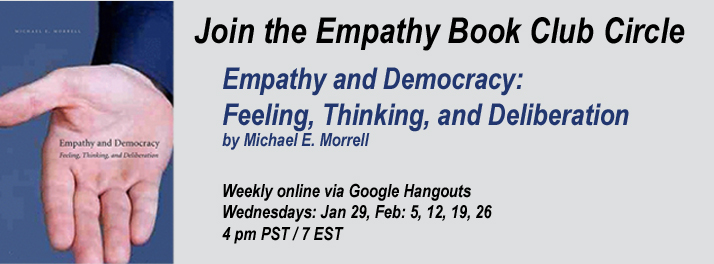
|
|
Michael E. Morrell is Associate Professor, University of
Connecticut. His main research interests examine the connections between
empathy and democracy, the effects of direct democratic participation on
citizens, and the role of political efficacy in democracy, public opinion,
and political behavior. He is also continuing to explore his theory of the
role of empathy in democracy as it relates to topics ranging from
President Barack Obama to agonistic democracy. Michael is author of
Empathy and
Democracy: Feeling, Thinking, and Deliberation. He writes:
"Today's democracies are still struggling to fulfill
democracy's
promise of equal consideration, and the claim I will defend
is that they can do so most fully by giving
empathy a central role in democratic
decision-making. "
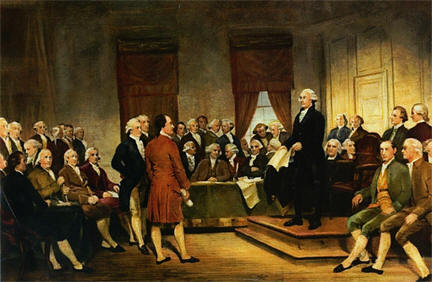
Signing of
the U.S.Constitution - Junius Brutus Stearns
(Wikipedia)
"only by placing empathy at the heart of deliberation
can democracy fulfill its promise of
allowing
legitimate decisions that
give
equal consideration to
all
those in society." |
|
|
|
|
|
Building New Authentic Empathy Communities &
Cultures
Kelly Bryson |
|
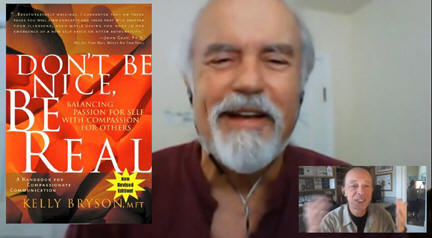 |
|
Kelly Bryson, MA, MFT is the author of the best selling
book, Don't Be Nice, Be Real
-
Balancing Passion for Self with Compassion for Others. He is a licensed
therapist in private practice, lecturer, workshop facilitator, and
consultant. He has been an authorized trainer for the International Center
for Nonviolent Communication for over 20 years, and has trained thousands
in the US, Europe, and the Middle East. Kelly is also a humorist,
guitarist, singer, and songwriter. He in now working on building new
authentic empathy communities & cultures. Kelly
writes, "When I empathize with someone, I become a strong and gentle wind,
filling the sailboat of the other's inner exploration. As the Wind, I
have no control over the steering of the boat. That is left up to the
captain of the ship, the person I am being present to. I do not try to
direct, only connect with where the other is in this very present moment.
I bring in no ideas of thoughts about the past or the future. I bring in
no thoughts of my own. I have no preference for where we go on this
journey
-
only that it come from the captain's heart and choice. The
purpose of my presence is connection, never correction. I am a steady,
present trade wind, not an impatient and gusty gale."
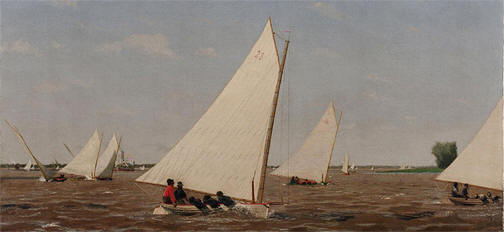
Sailboats Racing on Delaware - Thomas
Eakins (Wikipedia)
When I empathize with
someone,
I become a strong and gentle wind,
filling the sailboat of the other's
inner exploration...
"Empathy brings in nothing from the
past. When I am empathizing I am not remembering when I was having a
similar experience. In one sense I am not even there. The only thing
present is your experience, feelings and stories. I am being with the felt
sense of them. Relating to another experience is about you. Empathizing is
about them. Some people get so caught up in the fear of wondering whether
they are empathizing correctly that very little empathy or attention is
left to be with the other. It is not really about doing empathy or giving
empathy - it is being empathy."
Sub Conference:
Compassionate Communication (NVC) and
Building Empathic Community |
|
|
|
|
|
On Carl Rogers and
Being Empathic
Gay Leah
Barfield |
|
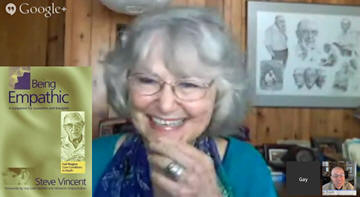
|
|
Gay Leah Barfield was a Fellow of Center for Studies of the
Person for nearly 30 years where she created one
of the first Women's Centers in San Diego, as well as the 22 year long
series of "Living Now" Summer Institutes. With
Carl R.
Rogers she co-directed the Carl Rogers Institute for Peace, applying
person-centered principles to real and potential international crisis
situations, for which Dr. Rogers was nominated for the Nobel Peace Prize in
1987.
Gay wrote the
forward to:
Being
Empathic: A Companion for Counsellors and Therapists, by Steve
Vincent.
She published several chapters in person-centered texts over recent
years relating to feminism and politics and PCA, with additional journal
articles.
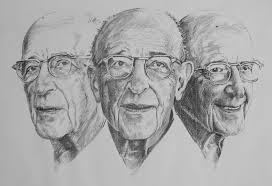
Empathy is a special way of coming to know another
and ourself, a kind of attuning and understanding.
When empathy is extended, it satisfies our
needs and wish for intimacy, it rescues us
from our feelings of aloneness.
Carl Rogers
Semi-retired, she continues to see private clients, mentor and train
MA graduate student therapists at the University of Hawaii in Hilo, as well
as write and publish about her experiences over the past 40 years as a
"gatherer," social activist, and stubborn idealist. Her immediate concern
for increasing civil discourse, based on Rogerian principles, particularly
as applied to the political dialogue process, is paramount among her
interests.
Gay and I talked about her work with Carl Rogers, her
insights into the nature of empathy and what she sees as the many benefits of empathy.
Sub Conferences:
Science: |
|
|
|
|
|
What's Wrong With Empathy?
Denise Cummins
|
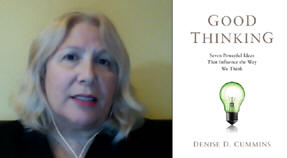 |
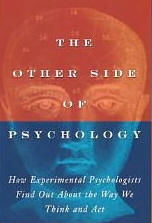 |
|
Denise Dellarosa Cummins is a retired Adjunct Professor of
Psychology and Philosophy, University of Illinois at Urbana-Champaign. Her
research interests include the evolution and development of higher
cognition in artificial and biological systems.
Her experimental investigations focus on Causal
Cognition, Social Cognition, and Moral Cognition. Denise is
an
author and contributor to several books including,
Good
Thinking
and
The Other Side of
Psychology.
She wrote an article
titled,
What's Wrong With Empathy,
as a
response to 'The Case
Against Empathy' by Paul Bloom in The New Yorker.
She writes, "To most of us, the idea that empathy is a good thing is a no
brainer. The more we empathize with the plight of others, the more ethical
and moral we behave towards them. Yet a number of psychologists and
philosophers reject this view....
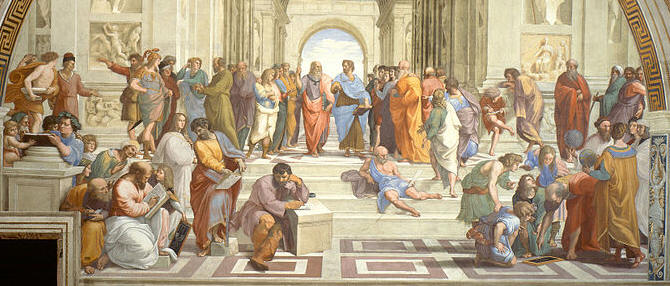
Philosophers:
The School
of Athens
- Raphael
(Wikipedia)
To most of us, the idea that empathy is a good thing
is a no brainer. ...
Yet a number of psychologists
and philosophers reject this view....
Some experts
believe empathy leads to bad moral judgments and bad social policy... The
desire to censure empathy stems from the belief that empathy and other
emotions necessarily lead to anarchy and retributive justice, while reason
necessarily leads to order and good judgment. Yet sufficient evidence from
the annals of human history plainly shows that reason, untempered by
empathy, is just as likely to lead to tyranny and genocide as it is to
lead to good judgment. When compassion and reason are decoupled, judgment
is not improved. Instead, the door is opened to inhumane practices."
Sub Conferences:
Science |
|
|
|
|
|
For & Against Empathy: Is
Empathy Necessary for Morality?
Jesse Prinz
|
|
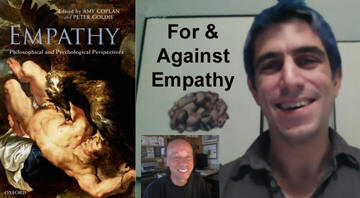 |
|
Jesse Prinz is Distinguished Professor at City University of
New York, Graduate Center. He says "I work primarily in the philosophy of
psychology, broadly construed. I am interested in how the mind works. I
think philosophical accounts of the mental can be fruitfully informed by
findings from psychology, the neurosciences, anthropology, and related
fields. My theoretical convictions are unabashedly empiricist. I hope to
resuscitate core claims of British Empiricism against the backdrop of
contemporary philosophy of mind and cognitive science."
Jesse wrote a couple of papers critical of empathy titled, 'Against Empathy'
and 'Is
Empathy
Necessary for Morality?' His work
has been referenced by other articles critical of empathy like
'The Baby in the Well, The case against empathy'
by Paul Bloom in The New Yorker
and 'The
Limits of Empathy'
by David Brooks in the New York Times.
Danger
-
empathy may be harmful?

Peter Paul Rubens
- Prometheus Bound
(Wikipedia)
Against Empathy:
"empathy is prone to biases that
render it
potentially harmful..."
In this engaging interview-dialog, Edwin Rutsch empathizes
with Jesse about the problems he sees with empathy and replies to some of
the criticisms. Jesses says, "empathy is prone to biases that render
it potentially harmful. Another construct -concern-fares somewhat better,
but it is also of limited use. I argue that, instead of empathy, moral
judgments involve emotions such as anger, disgust, guilt, and admiration.
These, not empathy, provide the sentimental foundation for morality."
Sub Conferences:
Science:
Philosophy |
|
|
|
|
|
Empathizing
with Paul Bloom's Concerns, Criticisms and
Judgments of Empathy
|
|
 |
|
Paul Bloom is a Professor of Psychology and
Cognitive Science at Yale University. His research explores how
children and adults understand the physical and social world,
with special focus on language, morality, religion, fiction, and
art.
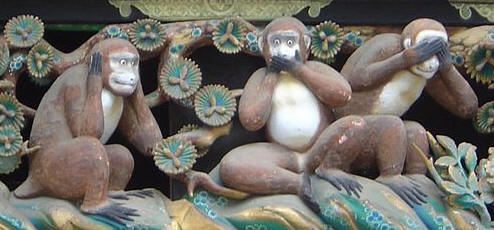
Three Wise Monkeys
(Wikipedia)
Empathy has some unfortunate features
-
it
is parochial, narrow-minded, and
innumerate.
We're often at our best when we're smart
enough not to rely on it.
Paul's article in the May edition of
the New Yorker Magazine, titled
"The
Baby in the Well, The
Case Against Empathy" expresses
some of his concerns about the current enthusiasm for empathy.
We are developing some empathic dialog to listen to and
empathically hear and respond to these concerns. |
|
|
|
|
|
Design
for an Empathic World: Reconnecting People, Nature, and Self.
Sim Van der Ryn |
|
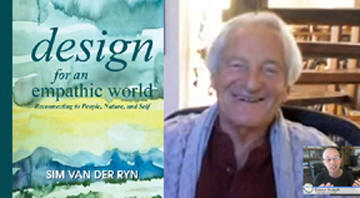 |
|
Sim Van der Ryn has been a teacher, writer, researcher, and
practitioner of design for forty years. A leading authority on ecologically
sustainable architecture and design, he is Emeritus Professor of
Architecture at the University of California, Berkeley, where he has taught
since 1961.
Sim is author of numerous books including his most recent,
Design for an
Empathic World: Reconnecting People, Nature, and Self. "He
advocates for "empathic design", in which a designer not only works in
concert with nature, but with an understanding of and empathy for the end
user and for ones self. It is not just one of these connections, but all
three that are necessary to design for a future that is more humane,
equitable, and resilient."
In Design for an Empathic World, Sim Van Der Ryn weaves
the architecture of empathy for
self,
others and
nature into a vibrant, compassionate whole...
"In Design for an Empathic World, Sim Van Der Ryn
weaves the architecture of empathy for self, others and nature into a
vibrant, compassionate whole. Brimming with gratitude, Van Der Ryn tells
stories from his life as an architect, teacher and thought leader. His
lesson, that only with empathy can we repair the fabric of humans and
nature." Jonathan F.P. Rose
Sub Conference: Human-Centered Design |
|
|
|
|
|
Organizing through Empathy: Introduction
Kathryn Pavlovich,
Keiko Krahnke
|
|
|
|
Kathryn Pavlovich is Associate Professor at the University of Waikato,
New Zealand. She has a special interest in conscious capitalism,
enterprise, self-leadership, ethics and spirituality.
Keiko Krahnke is Associate Professor at the University of Northern
Colorado. She has research interest in empathy, systems thinking, ethics,
and spirituality.
In this interview, editors Kathryn Pavlovich and Keiko Krahnke give
a broad overview of the book and the individual chapters.
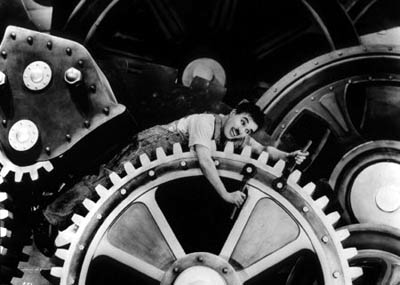
Charlie Chaplin - Modern Times
(Wikipedia)
This book challenges the existing paradigm of capitalism
by providing scientific evidence and empirical data that
empathy is the most important organizing mechanism..
Organizing
through Empathy. "This book challenges the existing paradigm of
capitalism by providing scientific evidence and empirical data that empathy
is the most important organizing mechanism.... Empathy dissolves the boundaries between self and
others, and feelings of altruism towards others are activated. This
process results in more compassionate and caring contexts, as well
as helping others in times of suffering. This book provides evidence
from neuroscience and quantum physics that it is empathy that connects
humanity, and that this awareness can create a more just society.
Sub
Conferences: Workplace and Science |
|
|
|
|
|
|
Organizing
through Empathy: Chapter
10
The Caring Climate:
How Sport Environments Can Develop Empathy in Young
People
Lori A. Gano-Overway
|
|
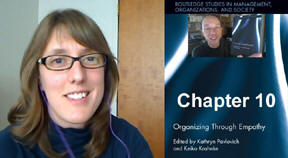 |
|
Lori A.
Gano-Overway is Associate Professor in Health and Exercise Science
interested in the psychosocial aspects of physical activity.
Lori teaches sport psychology, health and exercise
psychology, motor behavior, research methods, and administration of sport
and physical education programs
Organizing
through Empathy. "This book challenges the existing paradigm of capitalism
by providing scientific evidence and empirical data that empathy is the
most important organizing mechanism."
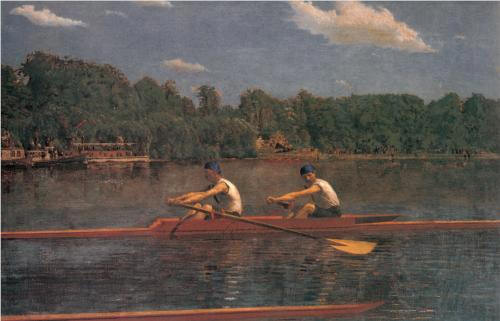
The
Biglin Brothers Racing
-
Thomas Eakins (wikipaintings)
By developing empathy, youth learn to attend to emotional cues,
listen, become sensitive to others, understand another's
perspective, and read the needs
of others...
"By
developing empathy, youth learn to attend to emotional cues, listen,
become sensitive to others, understand another's perspective, and read
the needs of others, which allows them to work and live with others in
community and act with compassion toward others' needs."
Sub
Conferences: Workplace and Science |
|
|
|
|
|
Organizing through Empathy: Chapter
12
Peter Senge and Keiko Krahnke
Transcendent Empathy: The Ability to See the Larger System
|
|
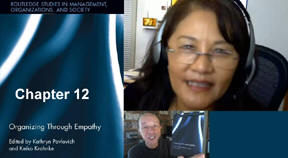 |
|
Keiko Krahnke is Associate Professor of Management;
Business Communications at University of Northern Colorado in the Montfort
College of Business. Areas of research interests include
spirituality and business, systems thinking, Appreciative Inquiry, and
corporate citizenship.
Peter
Michael Senge is an American scientist and director of the Center for
Organizational Learning at the MIT Sloan School of Management.

Study for Yosemite Valley Glacier Point Trail
- Bierstadt Albert (Wikipedia)
We propose the notion of "transcendent empathy"
as the
ability to see these larger systems in time
and space,
to move beyond mere
intellectual understanding...
"We suggest that empathy is something broader than knowing
or feeling another's psychological or emotional state. The fundamental
concept of empathy is to care about another as if you were in the shoes of
the other. Our purpose here is to expand this caring to the larger living
systems of which we are part. We propose the notion of "transcendent
empathy" as the ability to see these larger systems in time and space, to
move beyond mere intellectual understanding to embrace "system sensing" as
a doorway to other awareness of what exists now and to future
possibilities."
Sub
Conferences: Workplace and Science |
|
|
|
|
|
How to Transform Medicine with Empathy and Stories
Danielle
Ofri
|
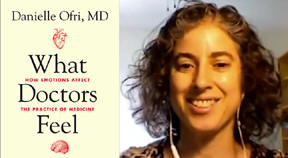 |
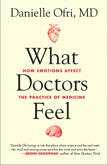 |
|
Danielle Ofri, MD is an essayist, editor, and practicing
internist in New York City. She is an attending physician at Bellevue
Hospital, and Associate Professor of Medicine at New York University
School of Medicine.
Danielle is co-founder and Editor-in-Chief of
the Bellevue Literary Review, the
first literary journal to arise from a medical setting.
Danielle's newest book -
What Doctors
Feel: How Emotions Affect the Practice of Medicine
-
explores the
hidden emotional world of the doctor, and how this impacts the medical
care that patients receive every day.
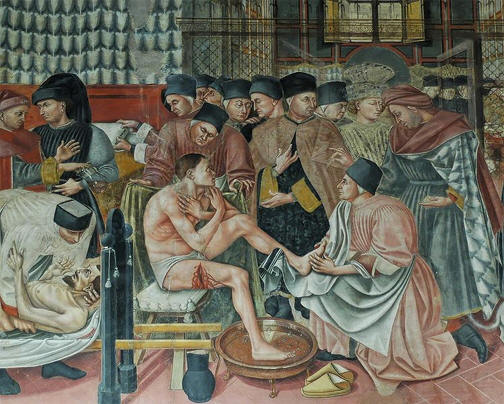
Healing the Sick
- Domenico di Bartolo
(Wikipedia)
It's no wonder that the third year of
medical school
figures prominently in studies that document
decline
of empathy and moral reasoning
in medical trainees...
She writes, "It's no wonder that the third year of medical
school figures prominently in studies that document decline of empathy
and moral reasoning in medical trainees... the erosion of empathy, for
example, may have long-reaching consequences. Patients of doctors who
score lower on tests that measure empathy appear to have worse clinical
outcomes. Diabetic patients, for instance, have worse control of their
blood sugar and cholesterol. Cancer patients seem to experience more
depression. Medication compliance diminishes. Even the common cold can
last longer."
Sub Conference:
Health Care
and
Arts
|
|
|
|
|
|
Panel 24:
Moving Medical Culture from Detachment to Empathy,
Jodi Halpern,
Helen Riess, Edwin Rutsch |
|
|
|
Edwin Rutsch,
Director of the Center for Building a Culture of Empathy, hosts a
discussion with two of the primary leaders in the movement to transform
medical culture from detachment to a culture of empathy.
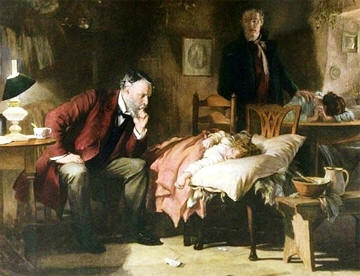
The Doctor - Luke Fildes (Wikipedia)
I've investigated what happens to patients when
their doctors show a lack of empathy...
only recently have studies proven just
how harmful detachment and how
beneficial empathy is for healing.
Jodi Halpern
Jodi Halpern
M.D., Ph.D, is Associate Professor of Bioethics and Medical Humanities
at the University of California, Berkeley, in the Joint Medical Program
and the School of Public Health. She is author of
From Detached Concern to Empathy: Humanizing Medical Practice.
Helen Riess
M.D., Ph.D is Associate Clinical Professor of Psychiatry, Harvard
Medical School and Director of the Empathy and Relational Science
Program at Massachusetts General Hospital. She is Chief Technology
Officer of
Empathetics
which offers scientifically based empathy training
proven to optimize interpersonal engagement.'
Sub Conference:
Health Care
|
|
|
|
|
|
Dialogs
on How to Build a Culture of Empathy
Daniel
Siegel
|
|
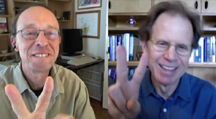 |
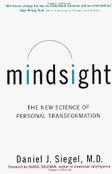 |
|
Daniel Siegel
M.D.
is a clinical professor of psychiatry at the UCLA School of Medicine and
Executive Director of the Mindsight Institute. His training is in
pediatrics and child, adolescent and adult psychiatry.
Dan
is the author of many books on parenting, child development, Mindsight,
etc.including
The Developing Mind, Second
Edition: How Relationships and the Brain Interact to Shape Who We Are
The Mindful Brain:
Reflection and Attunement in the Cultivation of Well-Being.
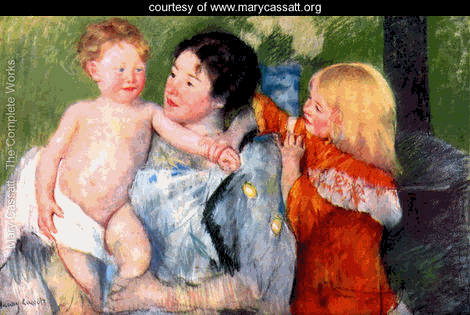
After bath
- Mary Cassatt (MaryCassatt.org)
When kids are able to watch an interaction that's empathic,
empathy isn't just being taught;
it's being demonstrated,
Dan shared his understanding about the importance of empathy and how it
works in the brain thought mirror neurons. "When kids are able to watch
an interaction that's empathic, empathy isn't just being taught; it's
being demonstrated," Talking about the importance of empathic
attunement, Dan says, "When we attune with others we allow our own
internal state to shift, to come to resonate with the inner world of
another. This resonance is at the heart of the important sense of
"feeling felt" that emerges in close relationships. Children need
attunement to feel secure and to develop well, and throughout our lives
we need attunement to feel close and connected."
Sub Conference:
Science
|
|
|
|
|
|
Dialogs on How to Build a Culture of Empathy
Arianna Huffington |
|
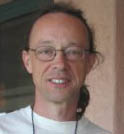 |
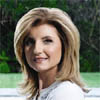 |
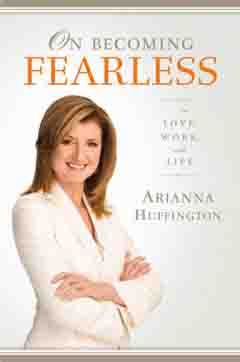 |
|
Arianna Huffington is president and editor-in-chief of the Huffington Post
Media Group. She is the author of numerous books including,
On Becoming
Fearless...in Love, Work, and Life.
Here is an interview I
did with Arianna via email.

The Fall of the Berlin Wall
(Wikipedia)
For the empathy movement, a critical mass is
when
the empathy habit is cultivated by
enough people that it can begin
to spread spontaneously.
How can we build a culture of empathy?
"To a physicist a
critical mass is the amount of radioactive material that must be present
for a nuclear reaction to become self-sustaining. For the empathy
movement, a critical mass is when the empathy habit is cultivated by
enough people that it can begin to spread spontaneously. I think of it
as an outbreak of a positive infection. And everyone has the potential
to be a carrier. So one thing we can do is to spread it as widely as
possible...
I think the opposite of empathy is the projection of our own fears onto
others. We've seen this over and over again throughout American history.
In times of economic upheaval, when huge numbers of people are losing
their jobs, losing their homes, and feeling powerless to do anything
about it, it has always been the case that people look for scapegoats.
Empathy is the antidote to that."
Sub Conference:
Journalism and Media. |
|
|
|
|
|
The Nature of Empathy and Compassion
Paul
Ekman |
|
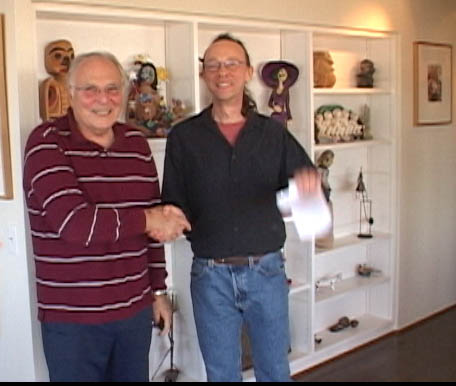 |
|
 |
|
The survival of the planet as we know it depends
on global
compassion...
If I was president,
thank god I'm not, I would start a
Manhattan Project on global empathy.
If I was president, thank god I'm
not, I would start a Manhattan Project on global empathy. It has the
urgency of the Manhattan Project. It needs the bringing together of
the best minds in the world to focus on this issue, because there is
an urgency too it. I think Al Gore was right, that time is running
out. We can't wait 20 or 40 years to figure out what to do with this
problem."
Sub Conference:
Science |
|
|
|
|
|
Frans de Waal talks with Edwin about
the Nature of Empathy |
|
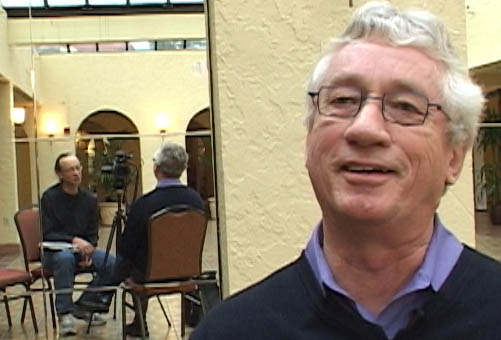 |
|
 |
How can we build a culture of
empathy?
I think it is important in society, especially at the moment.
Now that we have come out of this period where greed was so good. I
think it is important to emphasize that there are alternative ways
of looking at society. A society where solidarity is important and
caring about others is important.
%20macaque%20imitation.jpg)
Neonatal (newborn) macaque imitating facial expressions
(Wikipedia)
How can we build a culture of
empathy?
I think it is important in society, especially at the
moment. Now that we have come out of this period where greed was
so good...
A cultural and educational change that emphasizes empathy more.
The other things, that I'm not an
expert on, is education and culture of course. A cultural and
educational change that emphasizes empathy more. I would also warn
that empathy is not invariably positive. People think that empathy
is automatically a positive characteristic. Empathy can be used for
bad purposes also.
Sub Conference:
Science |
|
|
|
|
|
How to Build a Culture of Empathy
Marco Iacoboni
|
|
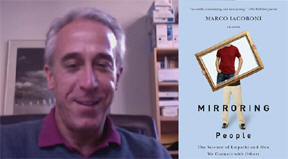 |
|
Marco Iacoboni is Professor of Psychiatry and
Biobehavioral Sciences and Director of the Marco Iacoboni Lab, UCLA
Brain Mapping Center at the University of California, Los Angeles.
He is author of,
Mirroring
People: The New Science of Empathy and How We Connect with Others.
"Empathy plays a fundamental role in our social lives. It allows
us to share emotions, experiences, needs, and goals. Not
surprisingly, there is much empirical evidence suggesting a strong
link between between mirror neurons (or some general forms of
neuronal mirroring) and empathy."
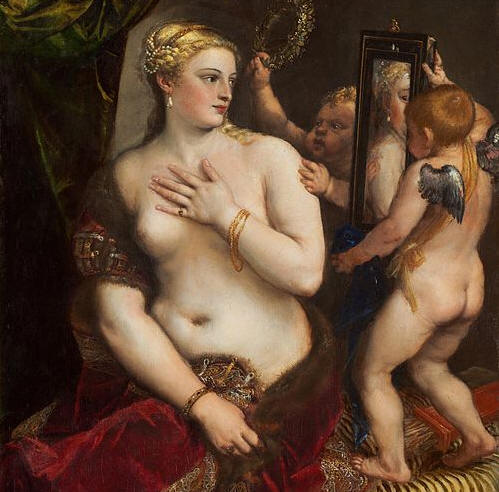
Venus with a Mirror - Titian
(Wikipedia)
A
culture of empathy can be increased by:
becoming aware about our biological capacity
for empathy through mirror neurons
In this interview,
Marco Iacoboni challenges the traditional Western understanding of
human nature as selfish and struggling for surviving and suggests
that neurologically and evolutionally we are predispositioned to
create empathic connections. A culture of empathy can be increased
by:
-
becoming aware about our biological capacity for empathy through
mirror neurons,
-
having intention to increase culture empathy,
-
creating more empathic living environment
-
decreasing the focus on differences and labeling
-
increasing the focus on us (similarities)
-
increasing empathic behavior of governments, leaders and
media....
|
|
Empathy
Definitions, Measurements & Metrics
Marco Iacoboni,
Lidewij Niezink, Edwin Rutsch |
|
|
In this second interview, Marco Iacoboni, Lidewij
Niezink and Edwin Rutsch discuss Definitions, Measurements &
Metrics of empathy. Marco says, "I think what's interesting
to me most is to define metrics of empathy. How can I measure this
thing? Why it matters? If we want to design interventions to
improve empathy we need to agree upon ways of quantifying it. People do
get bogged down in debates on definitions and don't even get to the
point of trying to discuss metrics of empathic behavior. This slows down
progress, I think"
Sub
Conference: Science |
Blog Roll Continued: Previous <
6 >
Next
<Home> < 8 > <
7 > < 6 > <
5
>
< 4 >
< 3 > <
2 > <
1 >
|
|